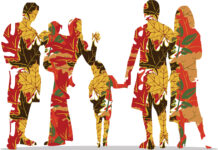Participatory research methods in mental health services have expanded. However, people with lived experience of psychiatric or psychosocial disabilities still face significant barriers to inclusion in mental health research and policy. A group of researchers, led by psychologist Nev Jones, have now published a call for investment in a pipeline of researchers with psychiatric disabilities and lived experience in the journal Psychiatric Services. Their article presents several steps that can be taken by research leaders and faculty today toward greater inclusion.
They write:
“Specifically, we call for efforts and initiatives that acknowledge and support people with PD/LE [psychiatric disabilities and lived experience] across the academic training and funding continuum—including undergraduate students, research assistants, and associates, and early- and mid-career researchers—and that do so on a meaningful scale.”
 In recent years calls have mounted to include lived experience perspectives in mental health research and service provision. Sometimes framed as “epistemic justice,” such calls play an important role in understanding how social justice can be incorporated into psychiatry and allied disciplines as a substantial practice rather than a buzzword.
In recent years calls have mounted to include lived experience perspectives in mental health research and service provision. Sometimes framed as “epistemic justice,” such calls play an important role in understanding how social justice can be incorporated into psychiatry and allied disciplines as a substantial practice rather than a buzzword.
Including individuals with lived experience of mental health disorders and treatments can improve healthcare training, quality of care, and the development of recovery frameworks and resources. Even more radical and more aligned with social justice goals are efforts to enable individuals with these experiences to step into positions of power in the research process.
In their article, Jones and a group of researchers across the United States and Australia explain why and how individuals with lived experience of the conditions, systems, and services under scrutiny should become central research decision-makers.
They explain that people with lived experience are the least likely to be currently involved as researchers, including those with “the most (potentially) disabling and stigmatized diagnoses, such as schizophrenia, borderline personality disorder, and severe substance use disorders; with intersecting experiences of the public benefits system, homelessness, housing instability, incarceration, poverty, racism, and other forms of structural discrimination.”
Drawing on best practices in expanding diversity and inclusion in the workforce, mentoring, and anti-discrimination policies, they outline how to create a pipeline for such researchers. Proactive recruitment, hiring, and sponsorship are key, and academic research teams should be more active in reaching out to service user groups in their communities and on their campuses. Recruitment ads conveying concrete support for, and interest in working with, PD/LE researchers can go beyond simple disability statements in facilitating participation.
Once recruited, support for PD/LE researchers involves combating academic ableism directly, with welcoming work environments, patience, flexibility, and reassurance. This may help such individuals cope with identity difficulties stemming from the intersection of research orientation and lived experiences with the subject matter. Mentors should validate and try to understand the difficulty of using overly objective or medical terms rejected by their survivor community, for instance.
“Rather than holding value as ‘token’ representatives, these researchers’ perspectives should be embraced inasmuch as they inspire teams to ask different research questions or pursue different kinds of goals,” they write.
Referencing the twin glass ceilings in research funding, tenure, and “independence,” the authors suggest that mentors, department chairs, and other leaders actively support the retention, promotion, and grantsmanship of fellows and faculty with PD/LE. While structures for doing so have been developed for women and underrepresented minority groups, they are yet to take off for such researchers in the mental health disciplines.
In addition to these steps, they point to the importance of leaders speaking up about discrimination in licensure and representation in public forums. The struggles in accommodation faced by researchers and faculty members who disclose psychiatric disabilities should be highlighted as part of ongoing efforts for deeper inclusion.
Meaningful involvement of people with psychiatric disabilities and lived experience requires strong leadership. While investing in a pipeline geared toward greater inclusion requires both commitment and action, it is necessary for making good on the social justice aspirations of the mental health-related disciplines.
****
Jones N, Atterbury K, Byrne L, et al. Lived Experience, Research Leadership, and the Transformation of Mental Health Services: Building a Researcher Pipeline. Psychiatric Services (Washington, D.C.). 2021 Mar:appips202000468. DOI: 10.1176/appi.ps.202000468. (Link)















“Meaningful involvement of people with psychiatric disabilities and lived experience requires strong leadership.” I agree. But, based upon my experience, too many of the psychologists and psychiatrists are so hell bent on “maintaining the status quo.” In this time, after their DSM “bible” was debunked as “invalid.”
https://www.nimh.nih.gov/about/directors/thomas-insel/blog/2013/transforming-diagnosis.shtml
That they have less than zero desire to listen to us researchers, who have “lived experience.” Who have found the medical evidence that their antidepressants and antipsychotics can create “psychosis” and “hallucinations,” via anticholinergic toxidrome. Plus, the antipsychotics / neuroleptics can also create the negative symptoms of “schizophrenia,” via neuroleptic induced deficit syndrome.
https://en.wikipedia.org/wiki/Toxidrome
https://en.wikipedia.org/wiki/Neuroleptic-induced_deficit_syndrome
Likely because this information is medical evidence that destroys the “genetic etiological” theory of psychiatry’s “sacred symbol.”
And, of course, Mr. Whitaker’s brilliant and complex research, which points out that both the ADHD drugs and antidepressants can create the “bipolar” symptoms. Which destroyed the “genetic etiological” theory of the “bipolar” diagnosis, did not go over well with too many of the psychiatrists either. Given the fact, the psychiatric leadership took this disclaimer OUT of their DSM5.
“Note: Manic-like episodes that are clearly caused by somatic antidepressant treatment (e.g., medication, electroconvulsive therapy, light therapy) should not count toward a diagnosis of Bipolar I Disorder.”
Rather than adding the ADHD drugs to that disclaimer, as should have been done.
Report comment
“Lived experience” just seems, to me, like either a Non-term or at worse an Orwellian term that just denies the unique individuality of each Human Being created in God’s Image. Thank you.
Report comment
I think lived experience is a useful concept when attempting to gain more control over the policies that directly effect your life and that are being developed by those who have none. It is less useful when one person’s lived experience is in direct conflict with another person’s lived experience. At that point, making an effort to value the diversity of experience and come to agreements that don’t harm or privilege one group over another is desirable but challenging. Many people would consider themselves as having lived experience of help rather than harm from the mental health system and this often places “consumers” at odds with “survivors”. I also think that this is where we can find benefit from evaluating what the long-term data suggest about current methods of help so that someone who has found that help useful in the shorter term can be educated about the risks of that same help over the longer term. Though I don’t think a total meeting of the minds is ever going to be possible and that sometimes knowing the exact nature of another’s experience is less useful than simply connecting with the feelings they have about whatever they’re dealing with since feelings are a much more universal concept. I may not understand exactly why someone is hurting or why what they’ve been through is significant to them. But I can understand THAT they are hurting. So in different contexts, different values emerge.
Report comment